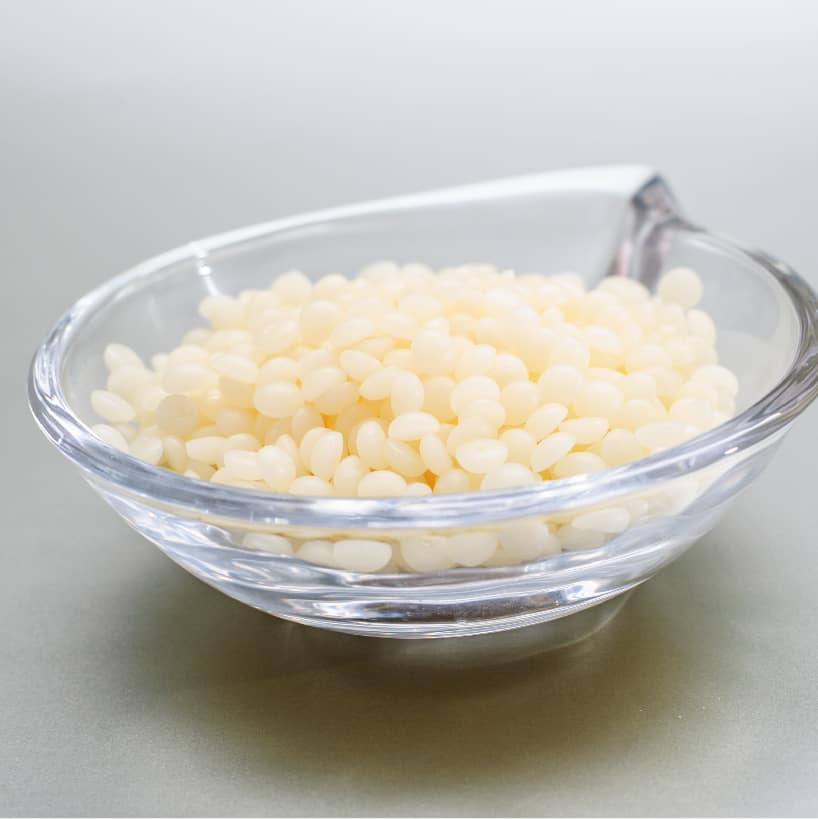Reveal the Advantages of Making Use Of an Emulsifier in Food for Boosted Culinary Experiences
Emulsifiers are commonly ignored yet necessary elements in cooking techniques. They help with the mixing of disparate active ingredients, boosting both flavor and appearance. By ensuring security, emulsifiers avoid the unsightly separation of blends. Their adaptability spans different applications, from sauces to dressings. Comprehending their feature can lead to substantial renovations in food high quality and discussion. What specific benefits do emulsifiers provide that can transform day-to-day meals right into phenomenal culinary experiences?
Understanding Emulsifiers: What They Are and Just how They Function
Emulsifiers play an essential role in the food market, acting as agents that facilitate the mixing of water and oil, two compounds that generally do not mix. These compounds possess both hydrophilic (water-attracting) and hydrophobic (oil-attracting) residential or commercial properties, enabling them to stabilize mixtures by decreasing the surface stress in between the two phases. Usual emulsifiers include lecithin, mono- and diglycerides, and certain healthy proteins.
When included in foodstuff, emulsifiers develop a secure emulsion, protecting against separation and ensuring a consistent appearance - Emulsifier In Food. They are essential in numerous applications, ranging from salad dressings and mayonnaise to ice cream and sauces. By keeping the integrity of blends, emulsifiers not only improve the visual appeal of food yet likewise improve mouthfeel and consistency. Their capacity to support emulsions makes them vital in modern food formula, contributing significantly to the high quality and life span of various items
The Duty of Emulsifiers in Flavor Improvement
While frequently forgotten, emulsifiers greatly add to taste improvement in foodstuff. They play a necessary duty in improving the total taste experience by ensuring that flavor substances are uniformly distributed throughout a meal. By maintaining solutions, such as dressings or sauces, emulsifiers protect against the splitting up of oil and water, allowing flavors to fuse together more properly. This consistent distribution not only magnifies the taste yet additionally assures that each bite is constantly flavorful.
In addition, emulsifiers can improve the understanding of specific tastes, making them extra noticable on the palate. They might connect with specific active ingredients, assisting to release volatile flavor compounds that add to a dish's fragrant profile. The use of emulsifiers can significantly raise the cooking experience, transforming easy recipes right into facility and delightful flavor journeys. Their refined yet impactful function in taste improvement must not be undervalued in the art of food preparation.
Emulsifiers and Structure: Creating Creamy and Velvety Dishes
The impact of emulsifiers extends beyond taste improvement to the domain of appearance, where they contribute in creating creamy and luscious recipes. By facilitating the consistent circulation of fats and water, emulsifiers enable the formation of secure emulsions, leading to a glamorous mouthfeel. This is particularly noticeable in products like mayonnaise, sauces, and dressings, where a smooth, creamy uniformity is desired.
Emulsifiers such as lecithin and mono- and diglycerides function to lower surface area stress between components, permitting a harmonious blend that enhances the sensory experience. The luscious texture attained through emulsification can raise meals, making them much more attractive and look at this now enjoyable. Additionally, the capability to create a velvety texture allows chefs to incorporate various ingredients without jeopardizing uniformity, causing ingenious culinary productions. Essentially, emulsifiers play a necessary role in transforming normal meals into remarkable culinary experiences via structure enhancement.
Security Matters: How Emulsifiers Prevent Splitting Up
An essential aspect of culinary emulsifiers is their capability to stop separation, making sure that items keep their desired structure and look with time. Emulsifiers work by stabilizing mixtures of oil and water, which normally tend to separate as a result of differences in density and polarity. By reducing surface area tension at the oil-water user interface, emulsifiers assist in the formation of secure emulsions, enabling an uniform circulation of components.

Usual Emulsifiers in Cooking and Their Applications
Comprehending the various emulsifiers typically used in food preparation discloses their significant duties in improving food structure and stability. Lecithin, stemmed from egg yolks or soybeans, is commonly used in mayonnaise and salad dressings, providing a creamy uniformity. Mustard, additionally an emulsifier, help in maintaining vinaigrettes while imparting taste.


Another popular emulsifier is xanthan gum, often made use of in gluten-free baking and sauces for its thickening homes. Guar gum tissue serves a similar purpose, boosting the texture of ice creams and milk go to my site items.
Mono- and diglycerides, frequently found in processed foods, help boost life span and preserve structure. Lastly, casein, a milk protein, is utilized in cheese-making and luscious sauces, adding to a smooth mouthfeel. Each of these emulsifiers plays a vital function in culinary applications, making sure desirable structures and preventing splitting up in varied food.
Often Asked Inquiries
Are Emulsifiers Safe for People With Food Allergies?
Emulsifiers can be secure for individuals with food allergies, relying on the certain emulsifier made use of. It is necessary to recognize the resource of the emulsifier, as some might activate sensitive responses in delicate individuals.
How Do Emulsifiers Impact the Nutritional Material of Food?
Emulsifiers can affect the dietary web content of food by improving nutrient absorption and improving appearance. Their presence may additionally weaken particular nutrients, depending on the food matrix, possibly modifying total dietary value.
Can Emulsifiers Be Utilized in Vegan Cooking?
Emulsifiers can be properly made use of in vegan food preparation, giving structure and stability to dishes. Plant-based emulsifiers like lecithin, view publisher site stemmed from soy or sunflower, aid blend active ingredients, boosting the overall quality of vegan culinary developments.
What Are the Environmental Effects of Emulsifier Manufacturing?
The environmental impacts of emulsifier production typically consist of deforestation, water pollution, and high power intake. Additionally, some sources of emulsifiers can add to biodiversity loss, elevating problems regarding sustainability in food production practices.
How Do Emulsifiers Contrast to All-natural Thickeners in Cooking?
Emulsifiers offer smoother structures and boosted security compared to natural thickeners, which can impart distinctive flavors - Emulsifier In Food. While emulsifiers boost mouthfeel and appearance, natural thickeners provide more health benefits and can contribute to the recipe's flavor account
When added to food items, emulsifiers develop a stable solution, protecting against splitting up and making certain a consistent appearance. While typically neglected, emulsifiers substantially contribute to taste improvement in food products. Understanding the various emulsifiers generally used in cooking exposes their considerable duties in improving food appearance and stability. Emulsifiers can be secure for people with food allergic reactions, depending on the particular emulsifier utilized. Emulsifiers can affect the dietary web content of food by improving nutrient absorption and boosting structure.